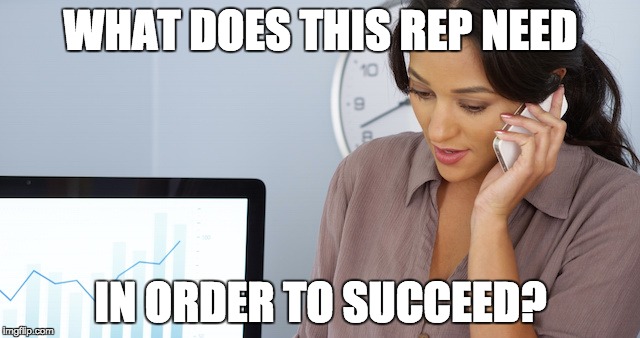7 Must-Know Skills B2B Sales Reps Need for Great Sales Calls
I’ve been hearing more and more sales leaders discussing the importance of sales enablement lately. Sure, hiring the right inside sales reps will always be important. But I think that more sales organizations are starting to get hip to the fact that—in this highly competitive market—sales talent alone isn’t close to enough.
 Beyond talent, hustle and other intangibles, there are a variety of things that sales reps need in order to have wildly successful sales calls.
Beyond talent, hustle and other intangibles, there are a variety of things that sales reps need in order to have wildly successful sales calls.
If you’re looking to enable your sales team to do a better job of helping customers, here are 7 key things that you should ensure that your sales reps have.
Clean Data
It’s absolutely critical that sales reps have up-to-date sales data whenever possible. Why? Imagine that a rep gets a prospect on the line.
Rep: Is this Jennifer?
Prospect: Yep.
Rep: Since you’re the Director of Marketing over at I thought you might be interested in learning more about my marketing automation tool.
Prospect: Actually I’ve been CRO for about a year.
Not the best way to start a sales conversation, is it? Having clean data doesn’t just help reps avoid awkward conversations, it also sets reps up to deliver targeted and personalized sales messages.
A List of Sales Discovery Questions
During initial calls with prospects, reps should always have a list of questions to ask in order to effectively qualify leads, uncover pain points and move deals forward. These questions will vary depending on what you’re selling and who you’re selling to. But to get you started, here is a list of 30 sales questions that can help your sales reps have successful discovery calls.
Background Information About Prospects/Accounts
Reps need to be able to glean some background information about each prospect. Whether reps leverage tools to surface data about prospects or simple use LinkedIn and Google to research target accounts, there needs to be an institutionalized process for how reps can acquire information necessary to have informed sales conversations.
Historical View of Past Conversations
Oftentimes when reps are reaching out to prospects, either they or someone else at your company might have interacted with them before. It’s important to be able to quickly view a history of past conversations in case a prospect references a past call or email. Revenue.io surfaces a contextual view of past activities including past calls, emails, tasks and more.
A Clear Reason for Calling
Reps should, before each call, have a clear reason why they are calling a prospect (besides “I’m calling to sell you my offering”). Some possible reasons for calls might include:
- A new offering
- An upcoming webinar that is relevant to their role
- They downloaded content
- You read a blog post they authored
- You met them/saw them present at an event
Try to come up with the best reason possible for your call. But any reason for calling is a heck of a lot better than no reason.
A Buyer Persona Template
In order to ensure that reps are delivering the right message to prospects, it’s important to make sure they’re aware of how your offering will benefit prospects in different roles. Using buyer personas can help reps quickly discover prospects’ pain points. They can also help reps adjust messaging to fit each buyer’s specific needs. To help you get started, we’ve created a buyer persona template that your reps can use to personalize their messaging to different sales roles.
Relevant Content to Share
As the saying goes, “Content is King, context is God.” Sharing content in the right context can have powerful effects on sales deals. Your marketing team probably spends a lot of time creating case studies, blogs, eBooks and webinars. The most successful sales reps often are very good at leveraging that content to propel deals forward. Whether you are using a tool to dynamically suggest content to reps, or simply create a doc with content suggestions for various contextual situations, helping reps leverage content successfully is virtually guaranteed to boost sales revenue.
For more ways to prepare for sales calls, check out our ultimate guide to personalizing your sales messaging!
